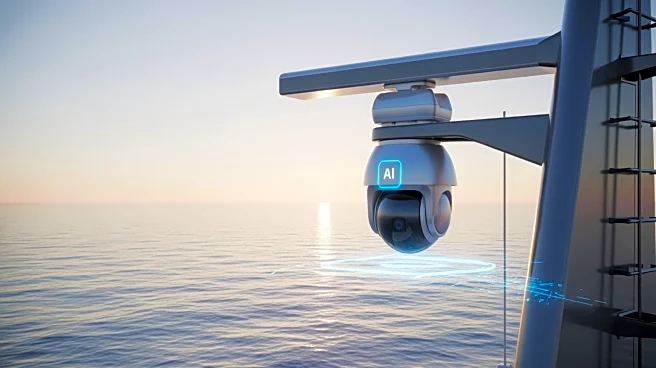What's Happening?
Consilium Safety Group and Hyundai Heavy Industries have partnered to trial AI-powered cameras for fire detection on ships. The collaboration focuses on Hyundai's HiCAMS technology, which uses cameras to identify
smoke and flames. A pilot test is underway on the test vessel Sawasdee Sunrise in Korea, integrating HiCAMS with Consilium's Safety Management Interface Graphics. The initiative aims to enhance fire detection capabilities on container vessels, particularly for cargo stacked above deck, where traditional smoke detectors may be less effective.
Why It's Important?
The use of AI cameras for fire detection represents a significant advancement in maritime safety technology. By providing earlier warnings and monitoring larger volumes, camera-based detection can improve emergency response and reduce the risk of fire-related incidents on ships. The collaboration between Consilium and Hyundai highlights the potential of integrating AI with established safety systems to enhance maritime operations. As the shipping industry seeks to improve safety standards, innovative solutions like HiCAMS offer promising avenues for protecting vessels and cargo.
What's Next?
The partnership is expected to pursue Approval in Principle (AIP) from classification societies, formally confirming the technology's viability for certification within fire alarm systems. Successful certification could lead to wider adoption of AI cameras in maritime safety applications, prompting further research and development in the field. The initiative may also inspire other industries to explore AI-based detection methods for enhancing safety and operational efficiency.
Beyond the Headlines
The trial of AI cameras for fire detection raises questions about the ethical and regulatory aspects of using AI in safety-critical applications. It also underscores the importance of collaboration between technology providers and industry stakeholders in advancing safety standards. As AI technology evolves, stakeholders must address these considerations to ensure responsible and effective deployment.










